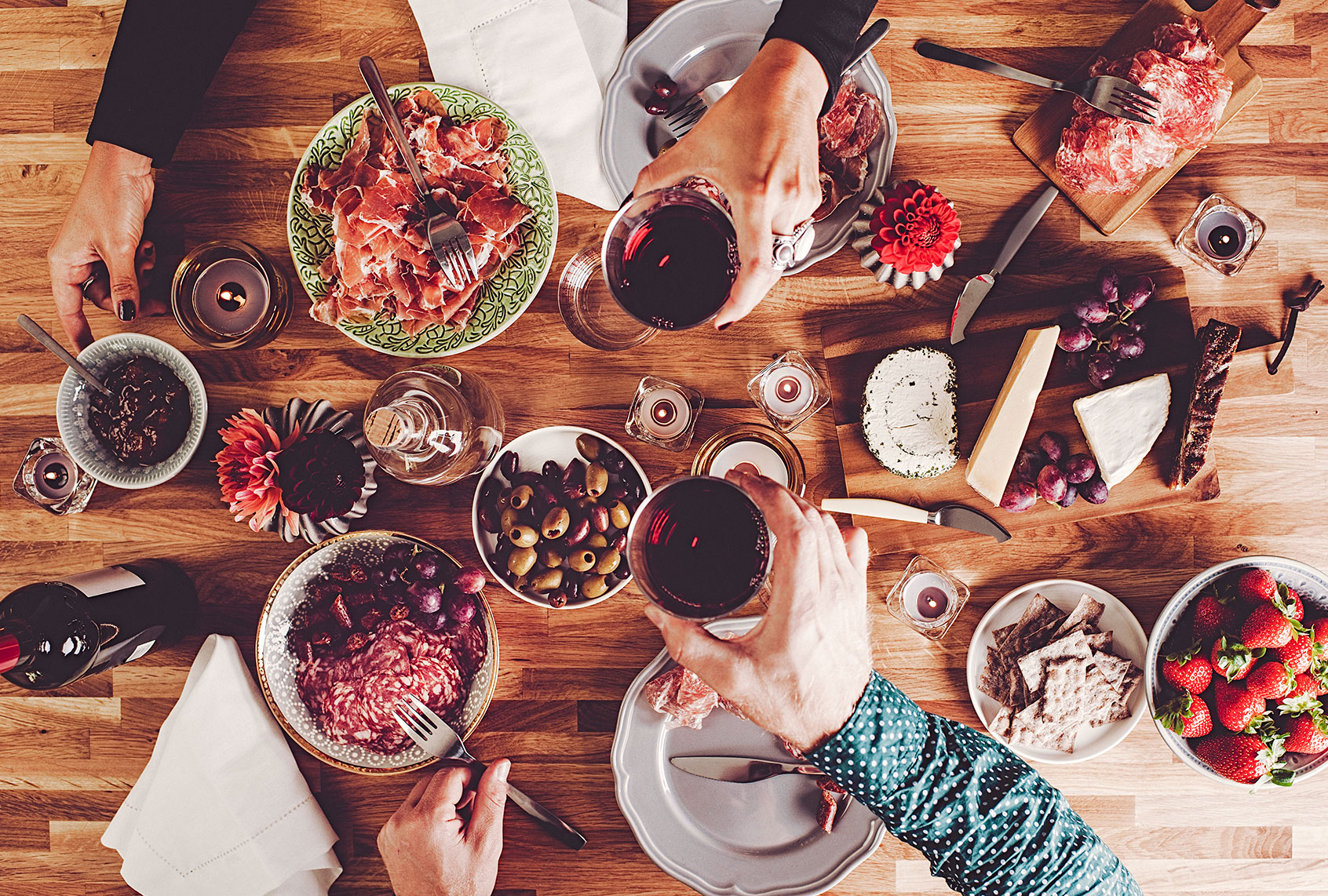
Christmas lunch is at your friend's house this year, and they've asked you to bring a plate. Money is tight. So, you find yourself wondering, "What's cheap, healthy but also looks impressive?"
While a tray of mangoes would certainly be a cheap, healthy and colorful contribution, you want to look as if you've put in a bit of effort.
If you're struggling for inspiration, here are some tried and tested ideas.
First, choose your ingredients
Check your pantry for inspiration or ingredients. Crackers, dried fruit or nuts are great ideas for a charcuterie board. You can use herbs and spices to add flavor to dishes, or you could use up packets of dried pasta to make a pasta salad. This is also a great way to clean out your pantry.
Focus on fruit and vegetables that are in season, so they are cheaper and more readily available. Keep an eye out at your local fruit and veggie shop or market, as it will usually have in-season fruit and vegetables in bulk quantities at reduced prices. Check out this seasonal food guide to help you plan your Christmas menu.
Ask around for deals by chatting to your local butcher, fishmonger or grocer and let them know your budget. They may suggest cheaper cuts of meat (such as oyster, blades, rump caps). Try cooking corned beef or roast chicken in a slow cooker with lots of vegetables. Slow-cooked meals can be frozen and come in handy for leftovers.
Lean into legumes. These are packed with fiber, protein, vitamins and minerals. They are also budget-friendly and a great way to add texture to salads. Tinned chickpeas, or cannellini, kidney or butter beans, are quick and easy additions that can make filling dishes go further. You could even turn tinned chickpeas into homemade hummus for a healthy and delicious side dish. Check out these healthy legume recipes.
7 ways to keep food costs down this Christmas
1. Plan ahead
Plan your menu by asking how many people are coming and checking for any food preferences or dietary requirements. Check for items you already have at home and make a shopping list for only what you need.
2. Use free recipes
Use free online recipe collections and e-books tailored for budget cooking that can help you design your Christmas menu to meet your budget. This one was created by a group of accredited practicing dietitians and has healthy, budget-friendly recipes and ideas. You could also try this budget-friendly collection of Christmas recipes from taste.
3. Involve the family
Get together with other family members and make it a challenge to see who can make the cheapest, most delicious dish. Get the kids involved in fun activities, such as making a DIY gingerbread house or putting together mixed skewers for the barbecue.
4. Pool your resources
Larger quantities of a single dish will be cheaper than multiple different dishes (and easier to prepare).
5. Frozen is fine
Use frozen fruits and vegetables if you need to. These can have just as many vitamins and minerals as fresh, are often cheaper than fresh produce and last longer. Try using frozen berries to decorate the pavlova or add them to your favorite cake, muffin or pie.
6. Make your own drinks
You could make your own drinks, such as home-brewed iced tea. See if anyone in your family has a soda stream you can borrow to make sparkling mineral water. Add some freshly squeezed lemon or lime for extra flavor.
7. Reduce waste
Use your own crockery and reuse leftovers to reduce waste. After all, washing up is cheaper than buying plastic or paper plates and better for the environment. Remember to save any leftovers and reuse them. Leftover fresh vegetables could be used to make a hearty soup or chutney.
It doesn't have to be perfect
Christmas comes and goes quickly. If your cooking ideas don't work out, it's not the end of the world. Choosing healthy foods on a budget is important all year around, so you may like to think about trying these tips throughout 2023.
Lauren Ball, Professor of Community Health and Wellbeing, The University of Queensland; Amy Kirkegaard, Postdoctoral Research Fellow, School of Human Movement and Nutrition Sciences, The University of Queensland; Breanna Lepre, Research Fellow, Mater Research Institute, The University of Queensland, and Emily Burch, Dietitian and Researcher, The University of Queensland
This article is republished from The Conversation under a Creative Commons license.







